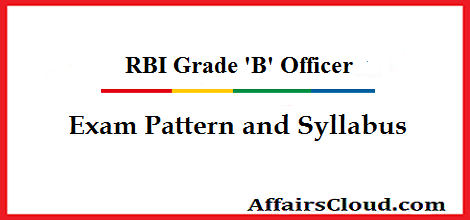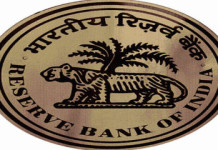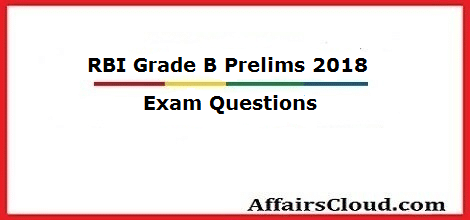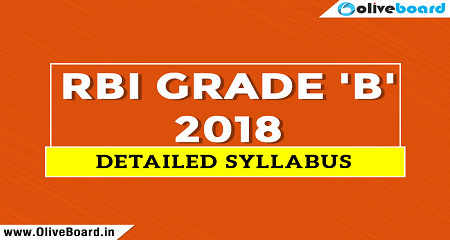Dear Aspirants,
Here we are providing you the detailed syllabus & exam pattern for both Phase I Examination and Phase II Examination of RBI Grade ‘B’.

Exam Pattern:
Phase I Examination:(Tentative Exam Date: 04.09.2016)
| Objective | Questions | Marks | Duration |
| General Awareness | 80 | 80 | 2 Hours |
| English Language | 30 | 30 | |
| Quantitative Aptitude | 30 | 30 | |
| Reasoning | 60 | 60 | |
| Total | 200 | 200 |
Phase II Examination:(Tentative Exam Date: 19.09.2016)
| Name of Paper | Type of Paper | Time (Minutes) | Marks |
|---|---|---|---|
| Paper-I: Economic and Social Issues | Objective Type | 90 | 100 |
| Paper II: English (Writing Skills) | Descriptive, to be typed with the help of the keyboard | 90 | 100 |
| Paper-III: Finance and Management | Objective Type | 90 | 100 |
SYLLABI (Phase-II)
Paper-I – Economic and social Issues:
Growth and Development – Measurement of growth: National Income and per capita income – Poverty Alleviation and Employment Generation in India – Sustainable Development and Environmental issues. Economic Reforms in India – Industrial and Labour Policy – Monetary and Fiscal Policy – Privatization – Role of Economic Planning. Globalization – Opening up of the Indian Economy – Balance of Payments, Export-Import Policy – International Economic Institutions – IMF and World Bank – WTO – Regional Economic Co-operation. Social Structure in India – Multiculturalism – Demographic Trends – Urbanization and Migration – Gender Issues – Social Justice : Positive Discrimination in favor of the under privileged – Social Movements – Indian Political System – Human Development – Social Sectors in India, Health and Education.
Suggested reference material:
Books:
1. Indian Economy: Uma Kapila.(Series of Books)
2. Indian Economy: Mishra Puri. (Latest Edition)
3. Growth And Development: Devraj Ray
4. Sociology: C.N. Shankar Rao
News Papers:
1. Economic Times
2. Hindu
3. Business Standard
Weekly/Monthly Magazines/Bulletins /Reports:
1. Economic and Political Weekly
2. Southern Economist
3. Yojana
4. Business India
5. RBI Bulletins
Reports:
1. World Development Report
2. Economic Survey of India
Paper-II -English (Writing Skills): The paper on English shall be framed in a manner to assess the writing skills including expression and understanding of the topic.
Paper-III -Finance and Management:
(I) Finance
(a) Financial System
1. Regulators of Banks and Financial Institutions
2. Reserve Bank of India- functions and conduct of monetary policy, Banking System in India, Financial Institutions – SIDBI, EXIM, NABARD, NHB, etc.
(b) Financial Markets
Primary and Secondary Markets (Forex, Money, Bond, Equity,etc.), functions, instruments, recent developments.
(c) General Topics
1. Risk Management in Banking Sector
2. Basics of Derivatives: Forward, Futures and Swap
3. Changing Landscape of Banking sector
4. Recent Developments in the Financial Sector, Portfolio Investment, Public Sector Reforms, Disinvestments
5. Financial Inclusion- use of technology
6. Alternate source of finance, private and social cost-benefit, Public-Private Partnership
7. Corporate Governance in Banking Sector, role of e-governance in addressing the issues of corruption and inefficiency in the government sector.
8. The Union Budget – Direct and Indirect taxes; Non-tax sources of Revenue, GST, Thirteenth Finance Commission and GST, Finance Commission, Fiscal Policy, Fiscal Responsibility and Budget Management Act (FRBM),
9. Inflation: Definition, trends, estimates, consequences, and remedies (control): WPI, CPI – components and trends.
Suggested reference material:
a. An introduction to Economics – A W Stonier and D C Hauge
b. Monetary Theory and Public Policy – Kenneth Kurihara
c. Indian Economy – Mishra and Puri
d. Indian Economy – R. Dutt and KPM Sundaram
e. Economic Growth and Development – Mayer and Baldwin
f. Major economic newspapers and Economic and Political Weekly
g. Public Finance – K K Andley and Sundaram
h. Financial Management – Prasanna Chandra
(II) Management:
Management: its nature and scope; The Management Processes; Planning, Organisation, Staffing, Directing and Controlling; The Role of a Manager in an Organisation. Leadership: The Tasks of a Leader; Leadership Styles; Leadership Theories; A successful Leader versus an effective Leader. Human Resource Development: Concept of HRD; Goals of HRD; Performance Appraisal – Potential appraisal and development – Feedback and Performance Counselling – Career Planning – Training and Development – Rewards – Employee Welfare. Motivation, Morale and Incentives: Theories of Motivation; How Managers Motivate; Concept of Morale; Factors determining morale; Role of Incentives in Building up Morale. Communication: Steps in the Communication Process; Communication Channels; Oral versus Written Communication; Verbal versus non-verbal Communication; upward, downward and lateral communication; Barriers to Communication, Role of Information Technology. Corporate Governance: Factors affecting Corporate Governance; Mechanisms of Corporate Governance




